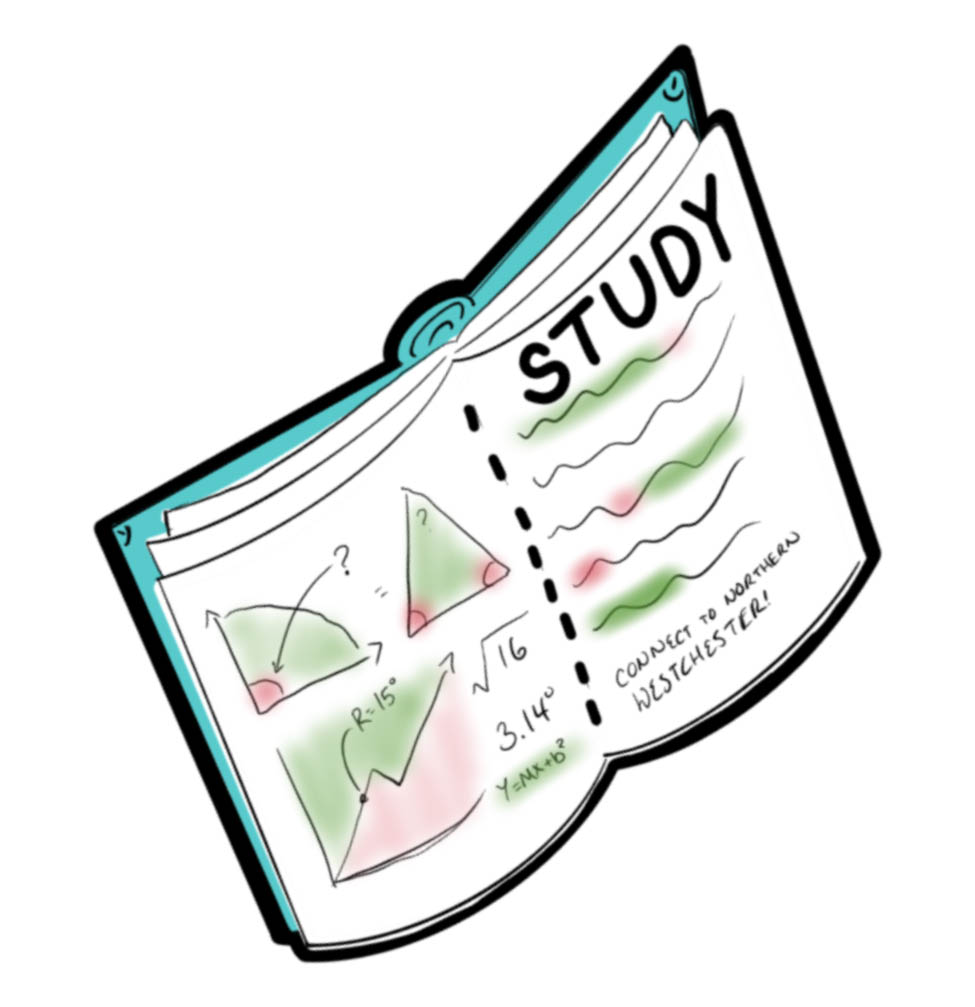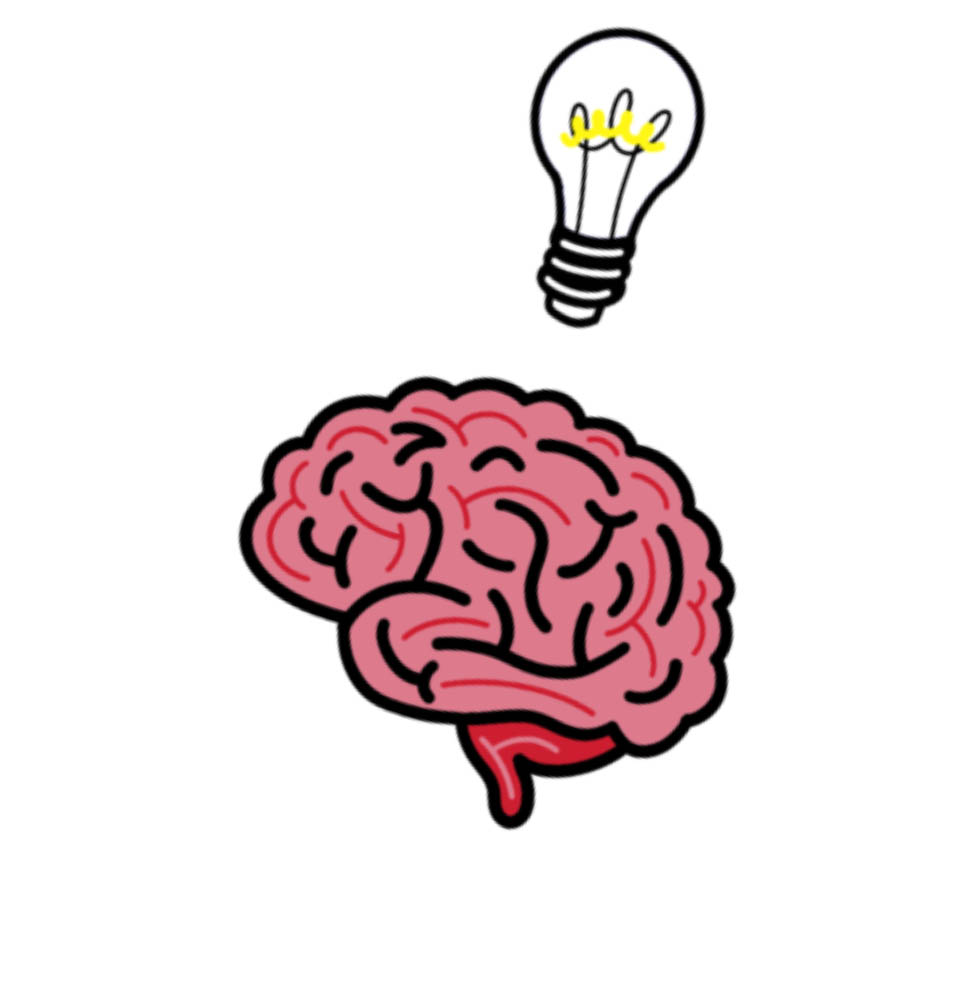A sequel to our life skills course.
By Ava Elghanayan
Artwork by Aeneas Eaton
Editor’s Note: Our last education issue (Sept./Oct. 2023) featured a life skills course that encouraged parents to teach teens about essential life skills that aren’t covered in the classroom. We explained how to teach everything from personal finance and grocery shopping to home repairs and job interviews. Given its tremendous popularity (if you missed it, you can find it on our website), we decided to do it again, this time focusing on classroom practices and other related skills essential to doing well in high school, college and beyond.
While schools equip students with foundational academic knowledge, many expect students to develop executive function, study habits, critical thinking and interpersonal skills without ever teaching them. And yet many of these skills are necessary well beyond our formal education, extending into all aspects of adult life.
But can parents, especially those without a degree in education or psychology, teach their children these skills? According to our experts, yes. These skills can be taught, practiced and developed; the main requirement is a willingness to learn alongside your student.
Study skills & note-taking 
Students should begin developing study skills in elementary school. And since good study habits start with proper note-taking, we’re combining the two here. Sarah Bergin, a school placement advisor with Evolved Education and a former instructional dean and dean of students at Sacred Heart in Greenwich, recommends developing a daily study routine with your child, even if they don’t have much homework. This can include free time (watching TV, playing outside) for 20 minutes before starting homework if that works best for your child.
It might take some trial and error to figure out a good routine, but once you do, the key is to maintain it consistently so your child knows what to expect each day. “It’s important to find the best study strategy for each student, whether it’s flashcards, quizzes or teaching someone else,” Bergin says. These strategies, she says, focus on active learning and repetition rather than passively reading a textbook, which doesn’t allow for as much retention of the information. Bergin also recommends encouraging your child to take regular “brain breaks” (taking a walk, listening to music—anything not on a screen) and to leave their phone in a different room to minimize distractions (see page 18 for the latest neuroscience on the best ways to study).
When it comes to studying, it all begins with taking notes. Different types of learners take notes differently, so it’s important to help your child find the note-taking method that works best for them. There are tons of options, including Cornell Notes, mind mapping for visual learners and outlining. Bergin says current research supports active studying while notetaking, such as rewriting notes or vocabulary, organizing lessons, pointing out key takeaways or practicing self-testing exercises. “It’s easy to copy down what a teacher has on a PowerPoint,” she says. “But students need to understand what it means and be able to summarize and synthesize the material.”
Every evening, as part of homework and study time, encourage your child to review their notes. It helps them retain the information they learned in class and identify anything they don’t understand so they can ask their teacher for clarification the next day.
 Critical thinking
Critical thinking
Critical thinking is our ability to break down, analyze and interpret complex information. When we can identify a problem and evaluate multiple solutions, we can make well-informed decisions academically and in real life. “We’re most successful when we can accurately understand what’s happening around us and make changes that work in our favor,” says Marc Abrams, Ph.D., a Mount Kisco-based psychologist.
Schools tend to focus on academic standards, which, according to Emily Azzari, a clinical resident with Pleasantville Wellness Group, leaves little time for teaching the ‘how’ of learning, which includes critical thinking. Therefore, it’s crucial for parents to model and teach these skills. “Parents shouldn’t assume that kids will develop these skills by a certain point, because critical thinking develops unevenly for each person,” Azzari says.
For younger kids, parents can model critical thinking by thinking out loud and sharing their processes. You should also encourage your child to work through challenges without immediately providing them with solutions. To help them, use collaborative language, such as asking about their plan for getting started. For older children, Azzari believes it’s important to have conversations and avoid lecturing. “Allow your child grace, and give them opportunities to practice processing failures. Help them reframe failures as learning experiences, which builds resilience.”
Abrams says having a job will also help students develop critical thinking skills. “When you work for somebody else, you have to do things you’ve never done before, and that forces you to be present, functional and cooperative while thinking about those things,” he explains. “Those are the precursors to critical thinking skills. Even kids who are not yet old enough to get a job can spend time helping around the house, earning and then learning to manage allowances.” Most of all, Abrams encourages parents to support their kids’ interests, whatever they may be. He suggests helping them “learn about their passions and always have their mind active towards some pursuit or goal.”
 Executive function
Executive function
Executive function skills help us self-regulate; they’re what allow us to plan, organize and manage our time as well as make decisions, shift between different thoughts or situations, control our emotions and impulses, and even learn from past mistakes.
For planning, organizing and time management, Bergin says helping your child find the right type of planner and/or calendar (and using it!) will help them learn how to stay on top of school assignments and their time. For younger kids, use a checklist (a visual one for kids who can’t read) that includes their daily tasks and routine. Starting these habits at a young age will help children develop organizational skills.
Older students, she says, should do a “daily download” before they start their homework, where they write down their daily assignments and any longer-term assignments so they can plan accordingly. “It’s important to break down the larger assignments into smaller tasks each day,” she recommends. “This way, the night before the paper or project is due, it’s already done, and they are simply adding finishing touches.” This can also help your child learn how to prioritize tasks by focusing on the assignments due the next day before working on long-term projects.
Once again, consistency is key. Developing routines and sticking to systems that work for each child will set them up for success and help prevent procrastination. Bergin suggests parents encourage kids to take ownership of their organizational system by choosing what they think will work best for them, including the style and colors of their planner or calendar. “Executive function skills are very important; they hold students accountable and help them think about the bigger picture,” she explains. “They are applicable to everything we do.”
When it comes to decision-making, flexible thinking and controlling emotions/impulses, Azzari says parents can encourage their kids to think about what they’re feeling, whether it is anxiety, overwhelm or embarrassment, then validate these emotions and encourage them to reflect. “Every behavior tells a story, and what looks like avoidance or defiance is often because they need support,” she explains. “It’s important to build these skills in a safe and nonjudgmental space by validating the challenge and teaching your child to move forward with tools, not shame.”
 Test anxiety
Test anxiety
Test anxiety is real. “Many students experience information overload as they’re taking in information when studying,” says Abrams. “Then, during the test, they have a limited amount of time to recall what they’ve learned and engage in critical thinking. For some, the pressure is overwhelming.” To minimize this, Abrams suggests focusing on how to study for each specific type of test, such as multiple choice, short answers and longer essays.
As mentioned earlier in this article, start studying early to avoid cramming the day before. Most importantly, focus on getting a good night’s sleep before the exam, as well as eating well-balanced meals and exercising.
Azzari encourages parents to teach their children relaxation techniques, such as deep breathing and progressive muscle relaxation, which can help ease anxiety during the test. And if allowed, fidget/sensory toys can also help regulate in-the-moment anxiety. “These techniques allow students to become comfortable with the discomfort they are experiencing,” she says.
 Interpersonal skills (a.k.a. “people skills”)
Interpersonal skills (a.k.a. “people skills”)
“In communication, receptive skills help us understand and process information, and expressive skills help us communicate verbally and nonverbally,” Abrams explains. “Children need to learn how to communicate in ways other people can understand and respond to.” To develop these skills, Abrams suggests involving students in activities they are passionate about so they can meet and converse with like-minded peers.
Parents should also teach children when and how to advocate for themselves calmly and respectfully. “By speaking up and explaining what they need, they’ll increase their resilience and ability to thrive in school and other social settings,” Azzari explains. Start by creating general scripts and guiding statements for your children, then help them practice until they can adapt them on their own when needed.
Teaching kids all the skills mentioned throughout this article is neither quick nor easy. However, with time and patience, it can be done. And who knows? You might just discover some new tools for yourself along the way.
This article was published in the September/October 2025 edition of Connect to Northern Westchester.









